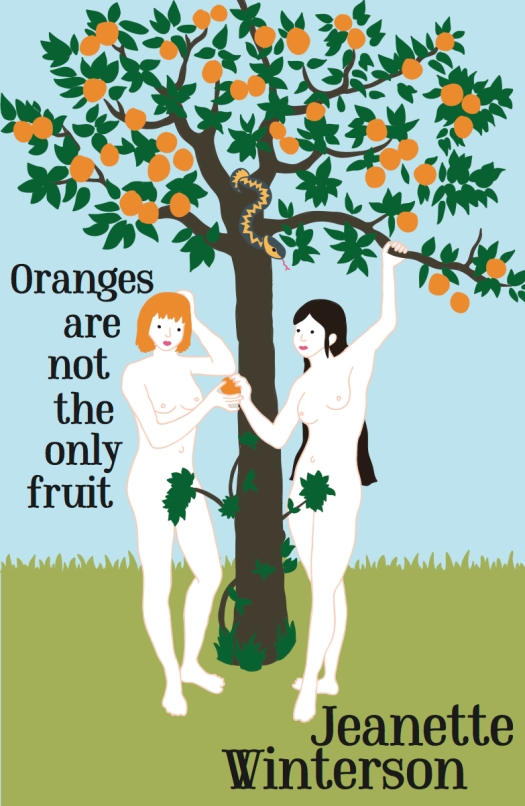‘Everyone thinks their own situation most tragic. I am no exception…’

We are rapidly approaching the end of my English Literature degree. Three long years of forced reading and wordy assignments. This year has been particularly difficult what with shrugging my way through Virginia Woolf, grimacing during The Good Soldier and frowning the night away with big Bill Shakespeare. While I always enjoy a bit of Jean Rhys, Oranges Are Not The Only Fruit is the first book this year that I can say I actively enjoyed. Thank you Jeanette Winterson. Sadly, this book isn’t the Orange is the New Black – The Handmaid’s Tale crossover that the world needs right now, despite the title.
Jeanette is a normal teen girl who goes through all of the normal, teen girl stuff. Rebellion, sexual awakening and being a lesbian in a household populated by fundamentalist christians. OK, the last one might be a little more specific to Winterson herself and this is reflected in the semi-autobiographical nature of the novel. This makes for a more enriching and relatable work however, and Winterson handles a time of tumult, tantrums and tears with gallows humour and maudlin heartbreak. Two of my very favourite things.
The working class tone of the novel also appeals, even if it is set on the wrong side of the Pennines, in Lancashire. While Winterson’s strict, religious upbringing is certainly not identical to my own humble Yorkshire beginnings, I could see shades of my childhood in the salt of the earth types that appear throughout Oranges Are Not The Only Fruit and made me smile in recognition. People look at you weird when you start smiling on the bus in turns out but not to worry.
Modernism is a tricky nut to crack in as much as sometimes it is difficult to tell whether you dislike something because you don’t understand it or because it’s just… well… shite. Oranges Are Not The Only Fruit sidesteps that debate by being a light, easy read that still takes in big ideas and profound emotions. Winterson isn’t interested in showing how much of a clever clogs she is, instead preferring to tell a story and to tell it well. If only other Modernist writers had followed that same path…
